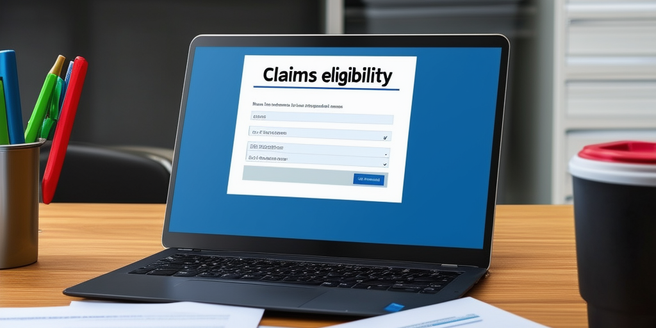Understanding the Fundamentals of Unemployment Claims
Navigating unemployment claims, particularly for those unfamiliar with the process, can be daunting due to complex rules and guidelines that differ from one state to another. The eligibility criteria is primarily based on reasons for job loss and the extent of your work history. It’s crucial to understand why your job ended and evaluate your employment history. Some states have additional requirements like the cause of job termination, which should ideally not be your fault, but due to downsizing or company-wide layoffs. Another key eligibility criterion is a sufficient work and earnings record in a ‘base period’, usually a year, to prove you have a significant commitment to the workforce. Thus, understanding these requirements is essential to determine your eligibility for unemployment benefits.
Deciphering Common Issues that Arise With Unemployment Claims
Misunderstanding and misinformation about the claims process can frequently lead to issues such as errors in the application stage, which can sabotage the success of your claim. Further complications arise when deadlines are exceeded – missed submission deadlines can delay processing or cause rejection of your claim. Similarly, discrepancies in reported income can also hinder claim approval. Other factors such as voluntary job termination, without valid reasons, can make you ineligible for certain benefits. Also, having an insufficient work history can restrict eligibility, particularly for those not employed long enough to qualify for benefits. Therefore, it is crucial to be fully aware of the eligibility criteria and the claims process to avoid these common stumbling blocks.
Strategic Tips for Avoiding Errors When Filing Unemployment Claims
In order to prevent mistakes, it’s essential to verify your eligibility for claims and understand your state’s rules, ensuring that you maintain accurate documentation of your earnings and work hours. This will reduce errors and establish concrete facts. Just as importantly, promptly file your claims and provide an accurate report of your job search activities, as both aspects are crucial for a successful transaction.
Anticipating and preparing for potential issues well in advance will reduce your stress and mitigate the impact of unexpected challenges. Therefore, validate, understand, document, report, anticipate, and prepare comprehensively for an efficient, error-free claim filing process.
How to Effectively Handle and Resolve Unemployment Claim Denials
Dealing with denials can surely be frustrating and disappointing, but it’s crucial not to view them as the end of the road. If you face rejection or denial, you can exercise your right to appeal and present your case again, an option provided in many circumstances. So it’s always wise to keep all relevant documents, such as application forms, letters, supporting evidence, at hand and well organized. Making sure to file your appeal within the specified timeframe is key, as delays can result in automatic denial.
Confronting legal complexities can sometimes be challenging on your own, so don’t hesitate to seek legal advice if it’s required. Professional guidance can greatly assist you to navigate through legal intricacies. Don’t let yourself be discouraged during this process, it might initially seem tough but remember it’s part of due procedure. Maintaining an optimistic outlook and a steady demeanor are key.
In essence, navigating through a denial effectively requires understanding your rights, having the necessary documents, timely action, professional help if needed and above all, a persistent spirit. Don’t view the denial as the final decree, it’s merely a challenge to overcome with the right approach.
Insightful Expert Advice on Navigating Unemployment Claim Disputes
Possessing a proactive attitude isn’t just about making initial moves, but also about forecasting potential obstacles and planning for them. Staying informed about possible complications and researching ways to manage them ensures preparedness, which lessens the magnitude of any situation. Establishing open lines of communication with authoritative bodies like your state unemployment agency can also prove invaluable. By proactively interacting with them and seeking their counsel when necessary, you can leverage their resources and information, particularly during tough times. Don’t hesitate to reach out to professionals when you face hurdles as they have the expert knowledge and experience to guide you. However, remember that each situation is unique; what works for one might not work for another, hence personalizing your approach according to your circumstances, conditions, and factors, while considering best practices is crucial. Maintain flexibility and adaptability to effectively manage life’s unpredictability.



